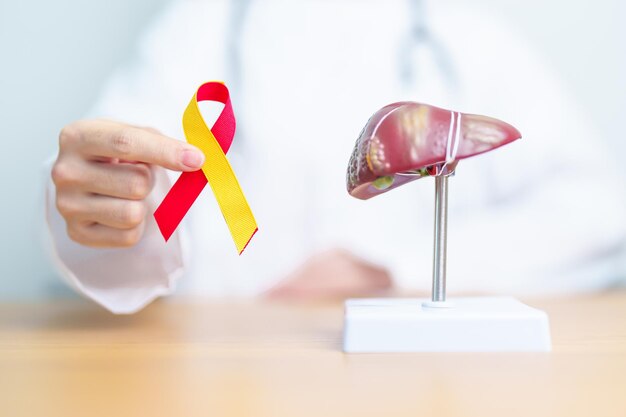Ask Ayurvedic doctor a question and get a consultation online on the problem of your concern in a free or paid mode. More than 2,000 experienced doctors work and wait for your questions on our site and help users to solve their health problems every day.
Hepatitis C Ayurvedic Treatment: An Evidence-Based Guide

Hepatitis C is a viral infection that primarily affects the liver and can lead to chronic liver disease, cirrhosis, or even liver cancer if left untreated. According to the World Health Organization (WHO), around 58 million people worldwide live with chronic Hepatitis C Virus (HCV), and nearly 290,000 die each year from complications related to hepatitis C. While conventional modern treatments (like Direct-Acting Antivirals, or DAAs) have significantly improved recovery and remission rates, many individuals also explore complementary and alternative medicine—including Ayurveda—to support their overall health.
In this article, we will delve into the concept of Hepatitis C Ayurvedic treatment, evaluating the available scientific evidence, traditional principles, and practical tips. We will look at how Ayurvedic therapies may complement standard HCV treatments, the specific herbs involved, lifestyle modifications, and the important caveats readers should keep in mind.
Disclaimer: The following information is for educational purposes only and should not replace professional medical advice. If you suspect or know you have hepatitis C, please consult your healthcare provider or specialist. Ayurveda can be a complementary approach but should not be used as a substitute for evidence-based conventional treatments.
Table of Contents
- Understanding Hepatitis C: A Quick Overview
- Ayurveda 101: Key Principles and Approach
- Possible Ayurvedic Approaches to Hepatitis C
- Evidence from Research: What Do Studies Say?
- Integrative Strategies: Combining Ayurveda with Conventional Care
- Lifestyle and Dietary Recommendations
- Safety, Precautions, and Contraindications
- Frequently Asked Questions (FAQ)
- Key Takeaways and Final Thoughts
1. Understanding Hepatitis C: A Quick Overview
Hepatitis C is caused by the Hepatitis C Virus (HCV). The virus spreads primarily through blood-to-blood contact. Common routes of transmission include:
- Sharing needles or medical equipment (e.g., used syringes, inadequately sterilized instruments).
- Receiving contaminated blood transfusions (less common now due to improved screening).
- Unsafe tattooing or piercing practices.
- From mother to child during birth (perinatal transmission).
Key Facts
- Symptoms: Many people remain asymptomatic for years, often referred to as a “silent infection.” When symptoms do appear, they may include fatigue, jaundice (yellowing of the skin or eyes), abdominal pain, and loss of appetite.
- Diagnosis: Blood tests are the most reliable diagnostic tool, measuring the presence of HCV antibodies and viral load.
- Conventional Treatment: Direct-Acting Antivirals (DAAs) have revolutionized hepatitis C care, yielding cure rates above 90% in many cases.
Despite the success of modern medicine, some patients look to Ayurveda for additional liver support, immune modulation, and relief from side effects. Ayurvedic treatments may hold potential supportive benefits, but it’s crucial to remain grounded in evidence-based practice.
2. Ayurveda 101: Key Principles and Approach
Ayurveda, a traditional system of medicine that originated in India thousands of years ago, focuses on a holistic approach. It involves:
- Three Doshas (Vata, Pitta, Kapha): These biological energies influence bodily functions, including digestion, metabolism, and immunity. Imbalance in any dosha can manifest as illness.
- Personalized Regimens: Treatments are customized to individual constitution (prakriti), with attention to diet, herbs, yoga, and detoxification processes such as panchakarma.
- Holistic View: Ayurveda views health as a balance of body, mind, and spirit, giving importance to lifestyle corrections and mental well-being.
For a liver-centric ailment like hepatitis C, Ayurveda often focuses on pacifying Pitta dosha (associated with heat and metabolism) since excess Pitta can manifest as inflammation and liver dysfunction.
3. Possible Ayurvedic Approaches to Hepatitis C
While there is no single standardized Ayurvedic protocol for hepatitis C, various practitioners may suggest an integrative plan that could include:
-
Herbal Remedies
- Bhumyamalaki (Phyllanthus niruri): Often cited for hepatoprotective properties.
- Guduchi (Tinospora cordifolia): Known in Ayurveda for its immunomodulatory effects.
- Turmeric (Curcuma longa): Curcumin, the active component, has shown anti-inflammatory potential.
- Kalmegh (Andrographis paniculata): May support liver detoxification and immunity.
-
Dietary Regulations
- Emphasize fresh vegetables, fruits, and whole grains to reduce “toxic load” on the liver.
- Avoid overly spicy, oily, or processed foods, which may aggravate Pitta.
-
Lifestyle Modifications
- Yoga & Pranayama: Breathing exercises like Kapalabhati or Nadi Shodhana and gentle yoga asanas, such as Bhujangasana (Cobra Pose) or Dhanurasana (Bow Pose), may help stimulate digestion and circulation.
- Stress Management: Techniques like meditation and guided relaxation are integral to Ayurveda and may help modulate stress, which can impact overall health.
-
Panchakarma Therapy
- A complex detoxification protocol involving processes like Virechana (therapeutic purgation), Basti(medicated enemas), Nasya (nasal therapy), Abhyanga (therapeutic massage), and Shirodhara (pouring warm oil on the forehead).
- Important: Always consult a qualified Ayurvedic practitioner. Panchakarma can be intense and must be done under expert supervision.
4. Evidence from Research: What Do Studies Say?
While Ayurveda has been used for centuries, rigorous clinical trials in the context of hepatitis C are limited. Here is what some peer-reviewed studies and medical institutions highlight:
- Phyllanthus niruri: Some in-vitro and animal studies suggest that extracts from Phyllanthus niruri may have antiviral activities, including potential benefits against hepatitis B and hepatitis C. However, these findings are preliminary, and large-scale human clinical trials are still lacking. (Source: PubMed, Journal of Ethnopharmacology)
- Andrographis paniculata: Research has demonstrated immunomodulatory and anti-inflammatory properties, but conclusive evidence in hepatitis C patients is still in the early stages. (Source: European Journal of Pharmaceutical Sciences)
- Turmeric (Curcumin): Known for broad-spectrum anti-inflammatory effects, curcumin is widely studied. Some research indicates it could help in managing chronic inflammatory conditions, but evidence specific to hepatitis C remains inconclusive. (Source: National Center for Complementary and Integrative Health)
- Integration with Conventional Therapy: A few small-scale studies suggest that adding certain Ayurvedic herbs might improve patients’ overall quality of life, reduce fatigue, and support liver function. Nonetheless, these studies often have small sample sizes, and results must be interpreted cautiously. (Source: Complementary Therapies in Medicine)
Key Takeaway: Although some Ayurvedic herbs show promising hepatoprotective and immune-modulating properties, more robust clinical trials are needed to establish safety, efficacy, and standardized protocols for hepatitis C. Reputable institutions like the National Institutes of Health (NIH) and the Centers for Disease Control and Prevention (CDC) emphasize evidence-based treatments—namely DAAs—and caution patients to consult healthcare professionals before starting any alternative regimen.
5. Integrative Strategies: Combining Ayurveda with Conventional Care
Given the seriousness of hepatitis C, an integrative approach might involve:
-
Continuation of Prescribed Antivirals
- Modern antivirals offer the best chance of clearing the virus. Do not discontinue or adjust these medications without medical supervision.
-
Complementary Ayurvedic Support
- Under expert guidance, herbal supplements like Guduchi or Bhumyamalaki might be introduced to bolster liver health and immunity.
-
Nutritional Counseling
- An Ayurvedic diet might help manage digestive issues and promote balanced doshas, but it should align with your physician’s dietary recommendations to avoid conflicts (e.g., restricting salt intake for patients with cirrhosis).
-
Regular Monitoring
- Regular liver function tests (LFTs), viral load monitoring, and ultrasound scans (if needed) ensure any Ayurvedic supplementation is not adversely affecting treatment outcomes.
6. Lifestyle and Dietary Recommendations
Both Ayurveda and conventional medicine agree on the value of a healthy lifestyle for managing chronic conditions like hepatitis C. Consider the following:
-
Balanced, Wholesome Meals
- Focus on whole grains like quinoa, brown rice, and millets.
- Include liver-friendly vegetables (beets, carrots, leafy greens) and fruits (apples, papayas).
- Limit processed foods and deep-fried or spicy meals that may aggravate Pitta.
-
Hydration
- Drink adequate fluids (water, herbal teas, low-sugar fruit juices) to support metabolic processes.
-
Regular Exercise
- Light to moderate exercises such as brisk walking, gentle yoga, or stretching can enhance blood circulation and aid liver function.
-
Stress Reduction
- Chronic stress can weaken the immune system. Practices like meditation, guided relaxation, and mindfulness can bolster psychological well-being.
-
Avoid Alcohol and Smoking
- Alcohol significantly damages the liver, and smoking contributes to overall health deterioration. Eliminating these habits is crucial to managing hepatitis C effectively.
-
Adequate Sleep
- Strive for 7-8 hours of quality sleep each night. Disrupted sleep can affect hormonal balance and immunity.
7. Safety, Precautions, and Contraindications
Before exploring any complementary therapies, keep these precautions in mind:
- Consult a Healthcare Provider: Ensure that Ayurvedic herbs or procedures are safe to combine with existing medications. Some herbal extracts may interact with antiviral drugs.
- Allergic Reactions: Herbs like turmeric are generally safe for most people but can cause allergic reactions in some. If you experience rash, itching, or discomfort, discontinue and seek medical advice.
- Quality Control: Only use Ayurvedic products from certified manufacturers. Adulterated or contaminated supplements pose serious health risks, especially for individuals with compromised liver function.
- Monitor Liver Function: Regular blood tests and check-ups help track any potential toxicity or adverse effects.
8. Frequently Asked Questions (FAQ)
1. Is there a proven Ayurvedic cure for hepatitis C?
There is no scientifically proven Ayurvedic cure that can eradicate the hepatitis C virus on its own. Current research shows potential benefits of certain herbs for liver support and immune health, but conventional antiviral therapy remains the gold standard.
2. Can I stop my antiviral medication once I start an Ayurvedic regimen?
No. Never stop your antiviral medication without professional guidance. Direct-Acting Antivirals have high cure rates. Complementary Ayurvedic approaches, if desired, should be used alongside conventional care under the supervision of a healthcare professional.
3. Are Ayurvedic herbs safe for everyone with hepatitis C?
Safety varies. Herbal preparations can interact with other medications, and not all individuals respond the same way. Consult an Ayurvedic practitioner and your physician for individualized advice.
4. What role does diet play in Ayurvedic management of hepatitis C?
Diet is crucial in Ayurveda. Emphasis on a pitta-pacifying diet—rich in fruits, vegetables, and whole grains—may support liver health. Avoiding overly spicy, fried, or processed foods is generally advised.
5. How long does it take to see results with Ayurvedic treatments?
Results vary widely, and many factors (such as disease stage, overall health, and compliance with recommended regimens) play a role. Some individuals may notice improvements in energy and digestion within a few weeks, while others may require months of consistent practice.
9. Key Takeaways and Final Thoughts
Hepatitis C is a serious viral infection that demands professional medical care. While Ayurveda offers a rich tapestry of herbal remedies, dietary guidelines, and lifestyle interventions, it should not replace evidence-based conventional treatments like Direct-Acting Antivirals. Instead, a well-designed integrative strategy—constructed in consultation with qualified healthcare providers—may help optimize liver function, reduce side effects, and enhance overall wellness.
Call to Action
- Share this article if you found it helpful.
- Comment below to let us know your thoughts or personal experiences with hepatitis C and Ayurvedic approaches.
- Subscribe to our newsletter for more evidence-based health and wellness insights.
By combining the best of both worlds—modern medicine’s targeted therapy and Ayurveda’s holistic lens—patients can potentially improve quality of life, manage symptoms, and maintain long-term liver health with greater peace of mind.
Disclaimer: The information in this article is for educational purposes and is not a substitute for professional medical advice. Always seek the guidance of a qualified health provider with any questions you may have regarding hepatitis C or any other medical condition.
References and Further Reading
- World Health Organization (WHO):
Hepatitis C Facts - National Institutes of Health (NIH):
Hepatitis C Information - Centers for Disease Control and Prevention (CDC):
Hepatitis C Resource Center - PubMed Database:
Phyllanthus Niruri Studies - National Center for Complementary and Integrative Health (NCCIH):
Turmeric Research Overview - European Journal of Pharmaceutical Sciences: Andrographis paniculata Research
- Complementary Therapies in Medicine: Herbal Supplements & Liver Health



